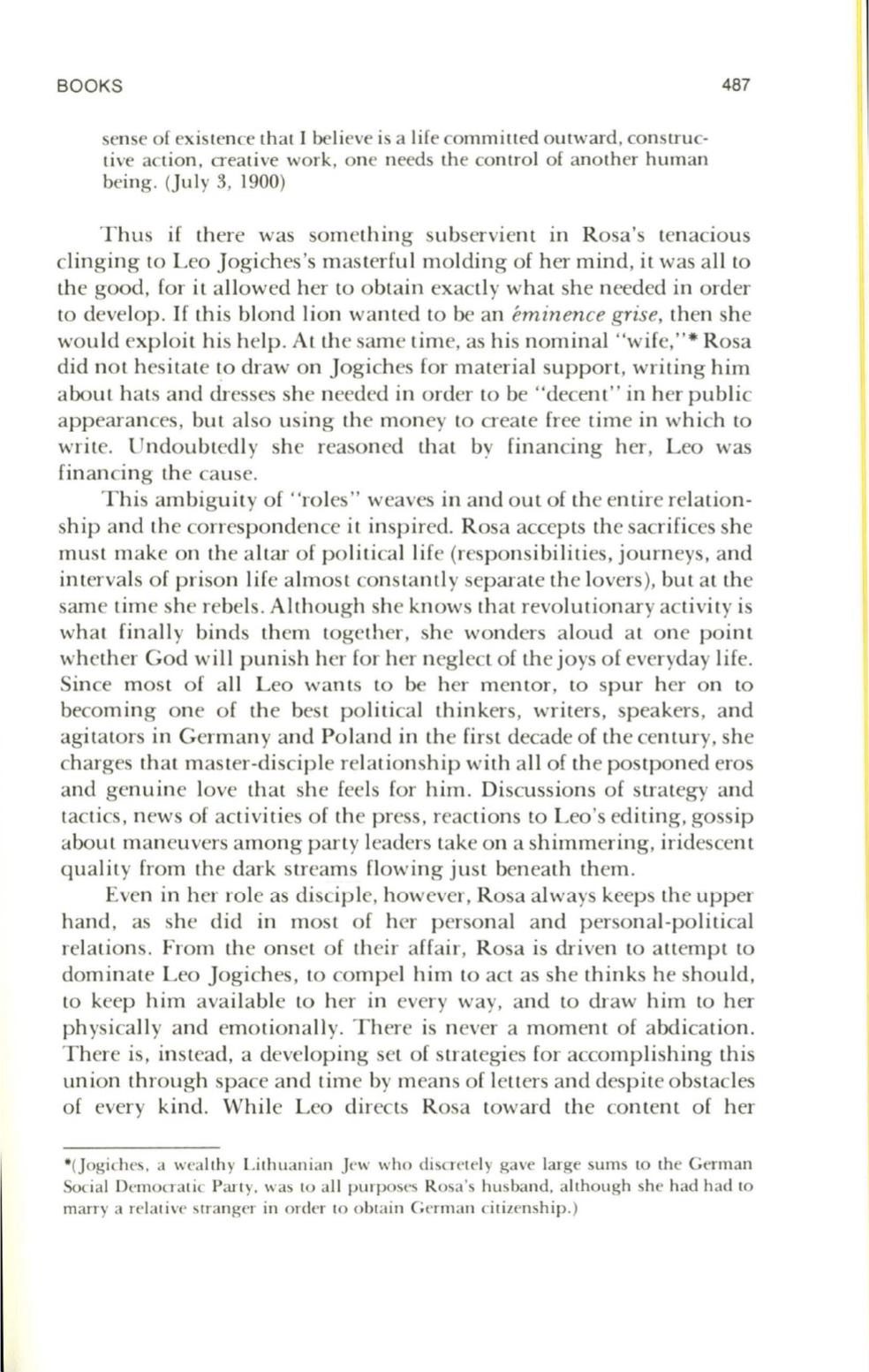
BOOKS
sense of exislence lhal I believe is a life commilled oUlward, construc–
live aClion, crealive work, one needs the control of anolher human
being. (July
3,
1900)
487
Thus if there was something subservient in Rosa's tenacious
clinging to Leo Jogiches's masterful molding of her mind, it was all to
the good, for it allowed her
to
obtain exactly what she needed in order
to develop.
If
this blond lion wanted to be an
eminence grise,
then she
would exploit his help. At the same time, as his nominal "wife," · Rosa
did not hesitate to draw on Jogiches for material support, writing him
about hats and dresses she needed in order to be "decent" in her public
appearances, but also using the money to create free time in which
to
write. Undoubtedly she reasoned that by financing her, Leo was
financing the cause.
This ambiguity of "roles" weaves in and out of the entire relation–
ship and the correspondence it inspired. Rosa accepts the sacrifices she
must make on the altar of political life (responsibilities, journeys, and
intervals of prison life almost constantly separate the lovers), but at the
same time she rebels. Although she knows that revolutionary activity is
what finally binds them together , she wonders aloud at one point
whether God will punish her for her neglect of the joys of everyday life.
Since most of all Leo wants
to
be her mentor, to spur her on to
becoming one of the bes t political thinkers , writers, speakers, and
agitators in Germany and Poland in the first decade of the century, she
charges that master-disciple relationship with all of the postponed eros
and genuine love that she feels for him. Discussions of strategy and
tactics, news of activities of the press, reactions to Leo's editing, gossip
about maneuvers among party leaders take on a shimmering, iridescent
quality from the dark streams flowing just beneath them.
Even in her role as discipl e, however, Rosa always keeps the upper
hand , as she did in most of her personal and personal-political
relations. From the onset of thei r affair, Rosa is driven to attempt to
dominate Leo Jogiches, to compel him to act as she thinks he should,
to
keep him available
to
her in every way, and
to
draw him to her
ph ysically and emotionally. There is never a moment of abdication.
There is, instead, a developing set of strategies for accomplishing this
union through space and time by means of letters and despite obstacles
of every kind . While Leo directs Rosa toward the content of her
°Uogiches, a weallhy Lithuanian Jew who discretely gave large sums to the German
Social Democralic Party. was
to
all purposes Rosa's husband, alLhough she had had
to
marry a relative stranger in order to oblain German cililenship. )


